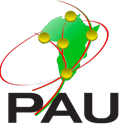MASTER OF ARTS IN TRANS BORDER LANGUAGES DESCRIPTION
Programme Duration
Two years, i.e. 24 months, or a total of four semesters.
Programme Objectives
The Pan African University Master of Arts in Transborder Languages and Intercultural Communication is a two-year course which aims to achieve the following objectives:
- Train high-level and interculturally-aware professionals in the use of specific endogenous transborder languages of Africa for purposes of quality social communication across the continent;
- Promote mutual understanding, peaceful coexistence and regional integration in the face of Africa’s linguistic and cultural diversity;
- Promote research and innovation in specific transborder language study, technology and use within the African context and beyond.
Programme Outcomes
At the end of the degree programmes, graduates shall be able to:
- Serve as high-level, innovative and enterprising professionals in the study and use of endogenous transborder languages of Africa as well as the development of requisite technology thereof;
- Enhance better intercultural communication among African people throughout the continent;
- Research and innovate in transborder language study, teaching, translation, interpreting, technology and use for communication throughout the African continent.
Admission Requirements
In order to be eligible for admission into the programme candidates must
- hold a recognised university degree or equivalent (preferably in the specified transborder language), with an excellent grade;
- have an excellent command of the transborder language of their choice over a wide range of topics and registers (transborder languages on offer each year shall be as indicated in the call for applications);
- have an in-depth knowledge of at least English and/or French; knowledge of any other African Union working languages shall be an advantage;
- have a good overall knowledge of international affairs and be well-informed of the economic, social and cultural backgrounds of countries in which their working languages are used.
- have a state-of-the-art multimedia computer tool with good optical character and voice recognition devices as well as reliable internet connection.
In addition, candidates shall be expected to have
- good writing and speaking skills;
- a high degree of motivation;
- a good interpersonal relationship skill;
- a readiness to accept feedback during training.
Admission into the programme is subject to success in written and oral aptitude tests designed to assess suitability for training. The tests shall include
- Translation (B-A and A-B);
- Use of Languages A, B (i.e. a language proficiency test);
- Knowledge of current-affairs.
Methods of Evaluation and Assessment
Tuition shall comprise course work, practicum and the submission and defence of a dissertation. Teaching shall be through lectures and workshops, tutorials and practicals. Evaluation shall be through continuous assessment, including class and take-away assignments, as well as term papers, end-of-semester examinations covering all subjects of each semester and submission and defence of a dissertation.
Examination panels shall include at least one external examiner who may be an end user.
Graduation Requirements
In order to qualify for the award of the Pan African University Master of Arts in Transborder Languages and Intercultural Communication, candidates must have earned a minimum of 156 credits, including course work, practicum, end-of-semester examinations and dissertation. The candidate must complete the course in two (02) years. The degree certificate shall clearly state the transborder language for which it is awarded.
Job Opportunities
Graduates of the Pan African University Master of Arts in Transborder Languages and Intercultural Communication shall be professionals with requisite skills to work either as media communicators, teachers, translators and/or interpreters, terminologists and lexicographers, public relations officers, intercultural communication brokers, transcriptionists, proofreaders and editors, subtitlers, corpus developers; they may also serve as researchers or consultants in language, translation and/or interpreting, terminology and lexicography, etc..


